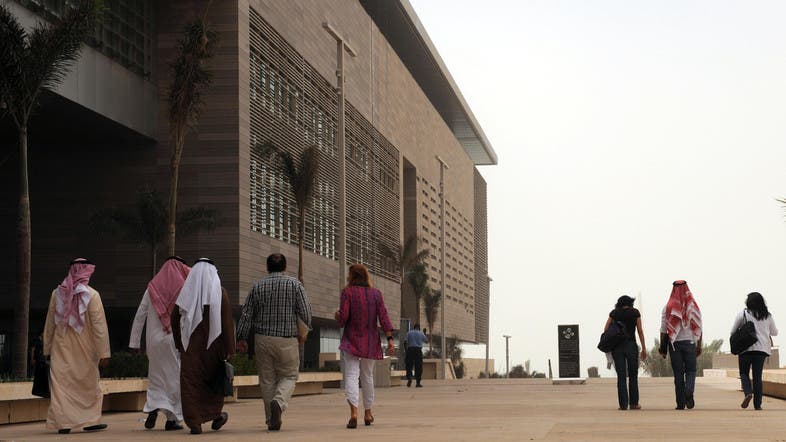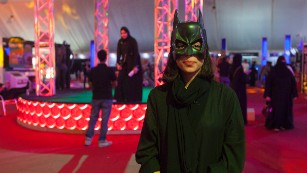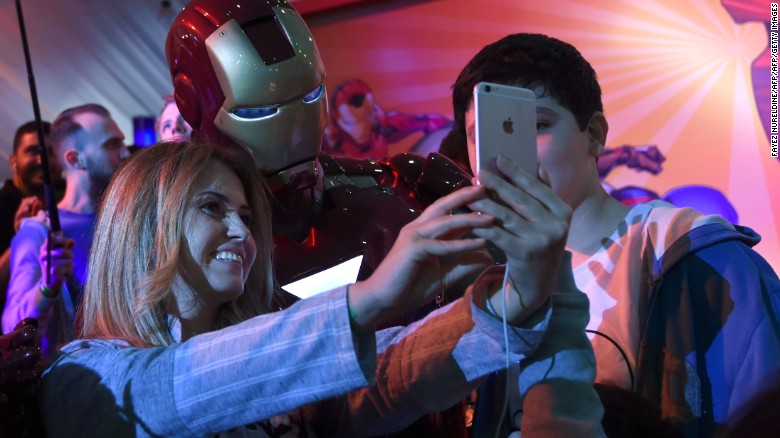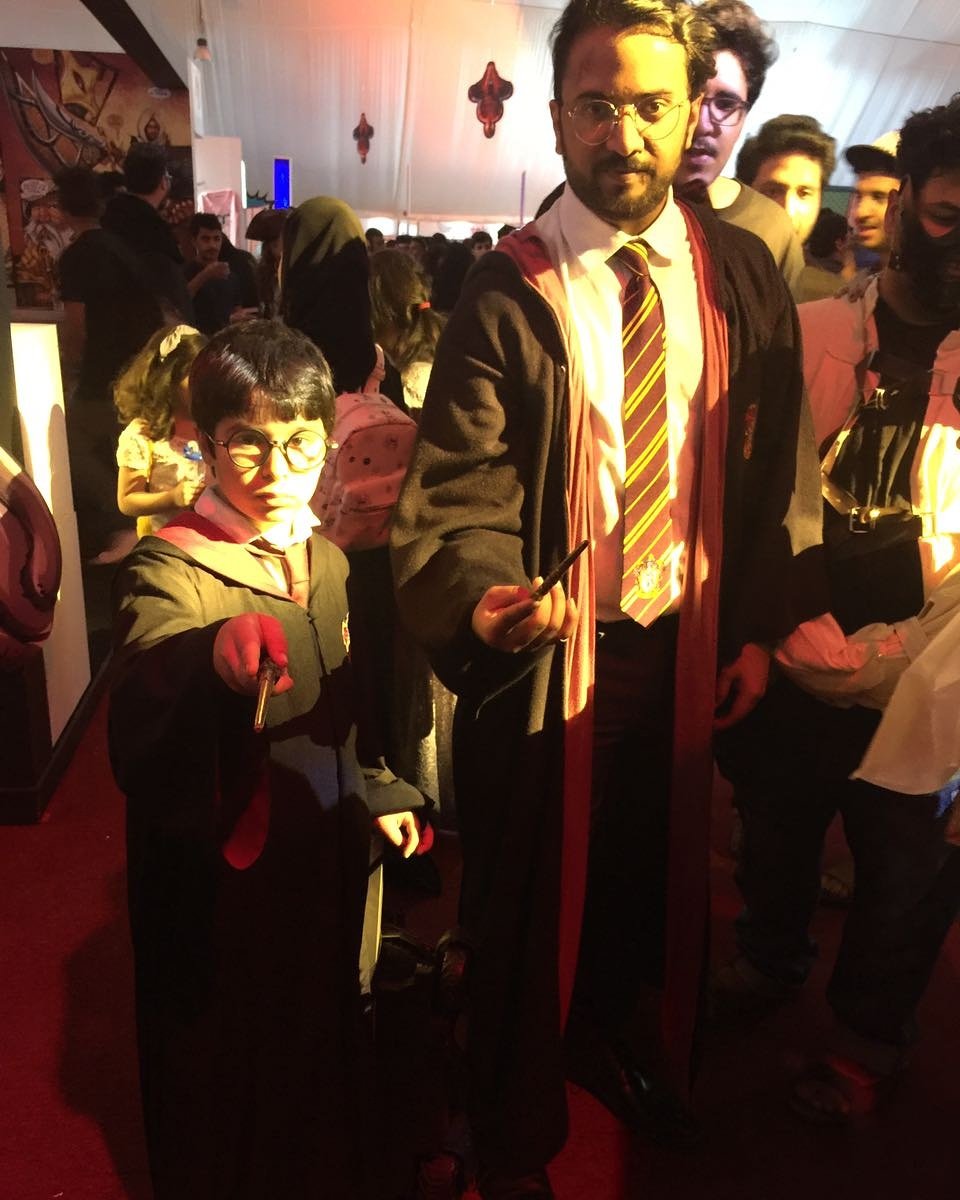Aisha Fareed | Published — Monday 27 February 2017
MAKKAH: Saudis have expressed pride and joy after it emerged that a citizen of the Kingdom, Dr. Yaseen Al-Mleaky was included in a team of researchers who helped discover seven new planets.
The planets, the discovery of which was announced by NASA, are similar to Earth in size and could have liquid water and maybe life, by extension, on the surface.
Al-Mleaky, who is president of the center for astronomy and space science in the Clock Tower in Makkah, said: “The center has 13 stations around the world, seven are international, five are local and one is located in the Clock Tower in Makkah”.
The Saudi researcher, who is also member of the teaching faculty in the Astronomy Department in King Abdulaziz University in Jeddah, added: “The observatory in Chile contributed to the monitoring of this star and planets that revolve around it”.
Saudis were pleased with this achievement and expressed their joy on Twitter. “I suggest that students should view Dr. Yaseen Al-Mleaky’s interview on Al-Arabiya to see a live role model and live with new discoveries”, wrote Naser Al-Hiyani.
Another Twitter user said Al-Mleiky’s participation in the research team is a source of pride for all young people in the Gulf.
This cluster of planets is less than 40 light-years away in the constellation Aquarius, according to NASA and the Belgian-led research team who announced the discovery Wednesday.
READ: 7 Earth-size worlds found orbiting star; could hold life
The planets circle tightly around a dim dwarf star called Trappist-1, barely the size of Jupiter. Three are in the so-called habitable zone, the area around a star where water and, possibly life, might exist. The others are right on the doorstep.
“We made a giant leap forward, and this discovery will enable us to answer the question that preoccupied a lot of philosophers throughout history, and the question we all ask, which is are we alone in this universe?” said associate administrator of NASA, Thomas Zurbuchen.
“Three of the seven planets could be suitable for life, and they might contain liquid water, which gives them vital weather conditions to develop biological life,” Zurbuchen added. Yaseen Al-Mleaky’s participation in this discovery isn’t the first Saudi contribution to space research. He was preceded by Prince Sultan bin Salman bin Abdulaziz who was the first Arab Muslim astronaut. Prince Sultan participated in the Space Shuttle Discovery trip in 1985, in the “STS-51-G” mission.
(Additional input from The Associated Press and Reuters)
http://www.arabnews.com/node/1060446/saudi-arabia
Women are taking the centre stage in Saudi Arabia
March 3, 2017:
A commercial bank in Saudi Arabia appointing a woman as a CEO; a woman becoming the dean of a renowned medical college; women and men attending the recent Comic Con event in Jeddah; Women-only gymnasiums gaining traction; celebration of first ever Women’s Day - Women in Saudi Arabia are well on their way to have similar rights as their male counterparts. The Kingdom of Saudi Arabia, with a progressive leadership & a formative Vision 2030 document is fast becoming a society well in-sync with the developments of the rest of the world.
A traditional society with deep respect for its culture, values and its belief system, the Kingdom of Saudi Arabia, has an innate regard for the role of women in society.
One the biggest development has been in the financial sector. The financial sector is considered notorious around the world for its blatant disregard for gender parity – but in the Kingdom of Saudi Arabia, a lady has become the CEO of a commercial bank.
Also, most recently Dr. Dalal Moheealdin Namnaqani, the first Saudi woman was appointed as the dean of Taif University College of Medicine. Her appointment is seen as a big step in further inclusion of women in academia.
Saudi Arabia has made various changes over the last decade to liberalize the role of women in society. Prominent instances of this include adult franchise - enabling women to actively participate in the country’s political space, encouraging women to take a proactive role in the shaping of the economy, and taking legal measures to bring about an end to domestic violence – an endemic in many societies in the west.
A momentous occasion in the history of women’s rights in Saudi Arabia came when women were able to vote for the first time on December 13, 2015– a sign of progress. And not just vote, women could also participate in the entire process, projecting themselves as leaders.
A strong gender divide is prevalent across the world, but the Kingdom of Saudi Arabia is taking giant strides in order to change the narrative of how women are held in society. The late King of Saudi Arabia King Abdullah bin Abdulaziz Al Saud was lauded for his role in expanding women’s rights in Saudi Arabia.
Very recently, Saudi Arabia celebrated its first ever Women’s Day. It featured many a speaker who spoke on various issues around women empowerment in society. The event was also attended by Her Highness Princess Al-Jawhara bint Fahd Al Saud of the Royal family engaging in a nuanced discussion on the role of women in education.
20% of the seats in the advisory council that support the central government is allotted to women, and many a celebrated woman are already part of the council. In 2013, women became a formidable force in the Shura Council.
According to a report by McKinsey Global Institute, the economic profits of bridging the gender gap in Saudi Arabia has taken a positive turn. According to the report, it will eventually lead to a spike in their GDP by at least US $52 billion before 2025. Multiple steps have been taken to include women in the economic structure. This month, more than 10,000 Saudi women received technical training including ways to repair mobile phones – in an effort to improve their employment chances.
The Kingdom has also taken many a steps to ensure participation of women - including the introduction of a distance work scheme that allows women to work from home. Additionally, the Mohammed bin Salman bin Abdulaziz Foundation (MiSK) recently launched an initiative to train women for leadership roles augmenting their management qualities which will eventually allow them to bring about positive influences at workplace.
In line with their ambitious social reform agenda ‘Vision 2030’, one of the goals of which is inclusion of women in the Saudi economy. Sarah Al-Suhaimi was appointed as the first ever women to chair the Saudi stock exchange along with Somayya Jabarti who will be the first ever woman to hold the rank of editor-in-chief in a Saudi news daily.
To add to that, Saudi Arabia’s Ministry of Labor and Social Development has revealed a national policy for female employment that will provide more than 50,000 outsourcing job opportunities.
Kingdom of Saudi Arabia is also bringing about various initiatives in order to make it easy for women to have a social, a political and an economic voice – as per some report, a woman no longer requires the male guardian’s permission to work. Authorities have given incentives to employers who allocate certain positions for women. Moreover, the Kingdom is providing hundreds of academic scholarships for women to study – in Saudi Arabia and abroad.
This week, Saudi Arabia hosted its first ever Comic Con event where both, men and women came together to share their love for comics, and other variants of pop culture.
This year’s Al Janadriyah festival also discussed various issues that plague women from across the world. To highlight the importance of women in society, Alwaleed Philanthropies - chaired by His Royal highness Prince Alwaleed Bin Talal Bin Abdulaziz Al Saud – collaborated with the festival to display videos showing the journey of women and their struggle. After criminalizing domestic abuse in 2013, the government has also established a center whose primary task is to receive and respond to reports of domestic violence.
Saudi Arabia has worked and is constantly working to ease the access of women to services. In a landmark move, the government will begin issuing licenses for women-only gyms from this month to promote health and fitness among women.
With such enabling policies and initiatives, gender equality and empowerment are resonating well in Saudi Arabia
http://www.thehindubusinessline.com...ntre-stage-in-saudi-arabia/article9569336.ece
The giant wakes up: Saudi Arabian Capital Market embraces new reforms
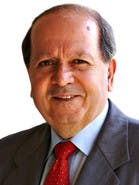
Dr. Mohamed A. Ramady
Wednesday, 1 March 2017
The Gulf’s biggest stock exchange, the Saudi Tadawul, has belied the perception of being too slow to act, and has woken up with a roar, with some new reforms that could force the other Gulf bourses to follow suit.
The most dramatic new changes are in allowing the listing of small capitalized Saudi firms, the so called SME’s-or Small and Medium sized Enterprises-to list in a parallel Saudi stock exchange to give a boost to this SME sector and expand the number of listed companies, compared to the current primary market which is dominated by larger capitalized and well establishes firms.
On Sunday 26 February, the NOMU-Parallel stock market was launched with a debut of seven firms in the retail, food and industrial sectors and reached an initial market capitalization of SR 1.9 B, with all companies gaining 20 per cent on the first trading day, their maximum daily limit, but which admittedly is still a tiny fraction of the formal market with a capitalization of SR 1.512 T ($403 B), and 178 listed companies.
The minimum capitalization in this new parallel market is SR 10 M ($2.7 Mil) or 10 per cent of requirement of main market listing and trading is limited to “qualified investors” such as institutions and government related entities with a fluctuation limit of 20 per cent to avoid undue speculation and erratic share price movements by retail investors which has plagued the formal stock market, given the so called “herd mentality” of small retail investors who seek short term profit as opposed to long term value added investment returns like institutional investors.
However retail investors can access these parallel market listings through investment funds, with specified investment strategies to reduce risk of direct investments. The seven new debut companies are a mixture of sizes, with IPO share prices ranging from SR 11 ($2.9) to SR 78 ($20.8), and the new number of shares listed ranging from 230,000 to 6,750,000 shares.
“This is a positive move to add breadth and depth to the Saudi market which has been dominated by the larger IPO and capitalized companies and is part of the strategy to diversify the economy and provide new capital access to SME companies away from traditional bank lending”. The Gulf’s biggest stock exchange is seeking to attract more capital from abroad as Saudi Arabia goes through unprecedented economic and social change.
Vision 2030
Foreign investment is a cornerstone of Deputy Crown Prince Mohammed bin Salman’s “
Saudi Vision 2030,” a blueprint for the post-oil period that includes plans to sell shares in state oil giant Saudi Aramco and expand its sovereign wealth fund into becoming the world’s largest. The private sector, and especially the SME sector, are slated to be the driving force for this new diversified Saudi economy and listing SME’s especially in the tourism, medical, food and IT sectors will assist in raising capital, expanding their base and creating local jobs.
This new move has certainly put practical teeth to the longer term transformation plan, and the ordinary Saudi citizen can see the immediate benefit and participate in it. The list of possible new listing from the Saudi Joint Stock Companies (JSC’s) who are potentially eligible is truly staggering, with around 4,500 registered JSC’s, out of 68,000 Saudi private sector companies.
According to the Saudi Stock Market head, 38 new companies will be listed in 2017, and the Saudi Capital Market Authority’s Vice Chairman Mohammed Al Kuwaiz said that the parallel market will be open to foreign qualified investors by 2Q 2017, and added that a lot of financial advisers are looking at the opening up of the market, as well as the privatization program and feel that the change in the overall market infrastructure is an opportunity, as the regulator has seen “a tremendously increasing amount of interest” from foreign firms seeking licensing to operate in Saudi Arabia.
Given regional interest in the large Saudi stock exchange with its large consumer and industrial base, companies from the Gulf Cooperation Council will be allowed to list in the parallel market as a primary or secondary listing.
Separately, there are more reforms in the pipeline concerning the formal market and Saudi Arabia is counting on rules that will extend the settlement cycle on stock trades to attract more foreign investors as currently the Tadawul stock exchange has about fifty qualified foreign investors and expects to draw more after shifting to a T+2 cycle (transaction date plus two days for settlement) by the end of June 2017, a system used across most major exchanges, while the current system requires same-day settlement.
Foreign direct investment
The Saudi stock market started allowing limited foreign direct investment in 2015 and eased restrictions further last year and foreigners currently own about 4 per cent of shares, with regulators arguing for more qualified foreign investors be allowed to participate, as they will ostensibly add a longer term investment, value added approach by assessing economic fundamentals of Saudi listed companies and sectors as opposed to emotion driven intra -day retail sector trading.
Another goal for Saudi Arabia is to be included in the prestigious emerging market MSCI or Morgan Stanley Capital International index, and the planned draft regulations for the settlement shift has already received encouraging feedback from most global index providers, including the MSCI. The kingdom is keen in seeking to join MSCI’s emerging market index, which is tracked by some of the world’s biggest fund managers.
The “T+2”is an important piece of change for MSCI to move forward to include Saudi Arabia on its emerging-market watch list, as the new settlement cycle would bring the Tadawul in line with international best practices. No longer will foreign qualified investors have to hold large funds in the Kingdom with their local brokers to execute transactions on same day settlement basis, but can do so two days after the transaction allowing them to manage their international liquidity more efficiently. The lion has awakened.
________________________________
Dr. Mohamed Ramady is an energy economist and geo-political expert on the GCC and former Professor at King Fahd University of Petroleum and Minerals, Dhahran, Saudi Arabia.
Last Update: Wednesday, 1 March 2017 KSA 14:46 - GMT 11:46
Disclaimer: Views expressed by writers in this section are their own and do not reflect Al
Arabiya English's point-of-view.
https://english.alarabiya.net/en/vi...audi-Capital-Market-embraces-new-reforms.html
Saudi Arabia Is Seeking Ways to Boost 4% Foreign Stock Ownership
by Matthew Martin and Vivian Nereim
26. februar 2017 13.49 Updated on 27. februar 2017 08.11 CET
- Stock exchange seeking to secure first cross-listing by 2018
- Counting on T+2 settlement cycle to attract foreign investors
Saudi Arabia is seeking ways to boost foreign investment in its bourse, almost two years after easing access to the one of the world’s most restricted exchanges.
The Tadawul, as the market is known, will hold talks with companies already trading on other Gulf Cooperation Council exchanges for a cross-listing in the kingdom by 2018, Chief Executive Officer Khalid Al Hussan said in an interview in Riyadh on Sunday. The country is also counting on rules that will extend the settlement cycle on stock trades to attract more foreign investors, according to the vice-chairman of the country’s Capital Market Authority.
Saudi Arabia allowed foreign investors to trade stocks directly in 2015, prompting analysts such as John Burbank, founder of San Francisco-based hedge fund Passport Capital LLC, to predict that billions of dollars of investment from overseas would flow into the market. Total foreign ownership of Saudi stocks is about 4 percent.
The kingdom only has Saudi Arabian companies listed on its bourse.
Aluminium Bahrain, which is listed in Manama,
halted plans to be the first non-Saudi company to list on the Tadawul in 2015, Chief Executive Officer Tim Murray said at the time. The Tadawul also wants private companies in the GCC to sell shares on its alternative market, Nomu, with the first expected this year, Al Hussan said.
The Tadawul is also on track for its own initial public offering next year, Al Hussan said. The exchange hired HSBC Holdings Plc’s Saudi unit as a
financial adviser for the sale in May.
‘Missing Piece’
The Tadawul has about 50 qualified foreign investors and expects to draw more after shifting to a T+2 cycle by the end of June, a system used across most major exchanges, Capital Market Authority Vice Chairman Mohammed El-Kuwaiz said in an
interview. The current system requires same-day settlement.
The country is also aiming for inclusion in MSCI Inc.’s emerging-market index to boost foreign ownership.
“T+2 is the last missing piece of the puzzle for MSCI to move forward on” possibly including Saudi Arabia on its emerging-market watchlist, Wafic Nsouli, the managing director and head of equities at Dubai-based investment bank Arqaam Capital Ltd., said by e-mail on Sunday. This is “a game changer for the country and the wider region and one we expect as soon as this May,” he said.
The Gulf’s biggest stock exchange is seeking to attract more capital from abroad as Saudi Arabia goes through unprecedented economic and social change.
Foreign investment is a cornerstone of Deputy Crown Prince Mohammed bin Salman’s “Saudi Vision 2030,” a blueprint for the post-oil period that includes plans to sell shares in state oil giant Saudi Arabian Oil Co. and expand its sovereign wealth fund into the world’s largest.
https://www.bloomberg.com/news/arti...aster-u-s-shale-oil-2-0-challenges-opec-again
Crowds flock to Saudi Arabia's first Comic Con
By Bianca Britton and
Basma Atassi, CNN
Updated 1346 GMT (2146 HKT) February 20, 2017
Saudi Arabia hosts its first Comic Con 01:31
Story highlights
- Over the weekend fans turned up for Saudi Arabia's first Comic Con
- At the three-day festival, which was part of a Saudi government initiative, women and men were allowed to mingle
- A hashtag calling Comic Con a "devil worshipping" festival became popular on Twitter
(CNN)Dressed all in black with her face exposed, Fatima Mohammed Hussein has come to Saudi Arabia's first Comic Con event dressed as Bat Girl.
"The minute I stepped in, I couldn't believe this is happening here," she told CNN. "It's a big move for Saudi to have something like that."
Hussein was one of the many Saudis who dressed up and flocked to the coastal city of Jeddah to celebrate pop culture, comic books, video games, and film between February 16 and 18.
Fatima Mohammed Hussein dressed as Bat Girl at Saudi Arabia's first Comi Con event.
The three-day festival was part of a government initiative to bring more entertainment to Saudi Arabia, which bans public cinemas and theater.
"When you enter into the tent, you forget that you are in Saudi Arabia," Abdul Rahman Bakhsh, 25, an engineer and an avid YouTuber, who came to the event dressed in rustic armor over a black faux suede pullover and armed with a spear, told CNN.
With his friend, Ameer, he documented the Comic Con experience
on YouTube video, starting with their search for costumes.
"There is a lot of creativity in Comic Con. People really interacted with the event and their costumes were amazing," Bakhsh said.
Gender mixing
Young men and women crowded into the tent, mingling near stands for comics and video games -- a remarkable scene for a government-sponsored event in a country where gender segregation is imposed in many public spaces.
People arrive at Saudi Arabia's first Comi Con.
A long queue formed in front of the booth of a group of talented female artists who -- with make-up -- created scars, injuries and anime-inspired faces. "It was Hollywood-level creativity," Bakhsh said.
A separate female-only tent was set up for women who wanted to take off their traditional abayas and show off their costumes.
A Lebanese woman poses for a selfie with a man dressed up as "Iron Man" during Saudi Arabia's first ever Comic-Con event in the coastal city of Jeddah on February 16, 2017.
Saudis at the event also had the opportunity to attend panel discussions with Charles Dance and Julian Glover from "Game of Thrones," Giancarlo Esposito from "Breaking Bad," and Mads Mikkelsen from "Doctor Strange."
Other panels featured Saudi producers and actors, including cast members from the upcoming Saudi superhero show, "Mas'hour" -- meaning "Bewitched."
Comi Con history
Comic Con events began in 1970 in San Diego and have slowly spread across the world. But before this festival, fans from Saudi Arabia had to outside the country to attend Comic Con events.
The Saudi version was organized by local company Time Entertainment. Its public relations manager Hisham AlSaeed said that Comic Con's international presence gave Saudi Arabia the perfect opportunity to highlight homegrown talent.
"There's a lot of talent (here) when it comes to comics, animations, anime (and) movie production," he said.
AlSaeed said the initiative was inspired by the huge demand for a Comic Con in his country, illustrated partly by the rise in people holding their own cosplay competitions at small, underground private events.
"(Comic Con) has never been done publicly like this, it has just never been set up," he said.
Attendees dress up and genders mix at Saudi Arabia's first Comi Con.
Setting up the event took over a year, and a balance was struck to keep the spirit of the Comic Con while adhering to the country's religious regulations.
Indecent symbols or logos that went against Islamic teachings were prohibited and attendees were not allowed to cross-dress.
Even then, there was uproar online against what was considered a Western phenomenon in the traditional Islamic kingdom.
A hashtag calling Comic Con a "devil worshipping" festival became popular on Twitter and some called for boycotting it.
Cultural reforms
A woman has her face made up at the event.
The event, which was supported by the Saudi Arabia's General Entertainment Authority, is part of country's "Vision 2030" program, which is promising a wave of cultural reforms to diversify the kingdom's oil-dependent economy.
AlSaeed said his team is planning to make this an annual event.
"We're considering this a soft Comic Con in Saudi Arabia, and then the next (one) will be way bigger.
"I'm hoping by next year we have a full cast of 'The Walking Dead', but we also have a lot of casts of our own movies and TV shows," he said.
http://edition.cnn.com/2017/02/19/middleeast/saudi-arabia-comic-con/



















